Teacup Chihuahuas, the diminutive darlings of the canine world, have captured the hearts of dog enthusiasts and pet lovers alike. These pint-sized pups, often small enough to fit in the palm of your hand or a small purse, are not a separate breed but rather a smaller version of the already tiny Chihuahua. Despite their minuscule size, Teacup Chihuahuas pack a punch in terms of personality, boasting all the vivaciousness and spunk of their standard-sized counterparts.
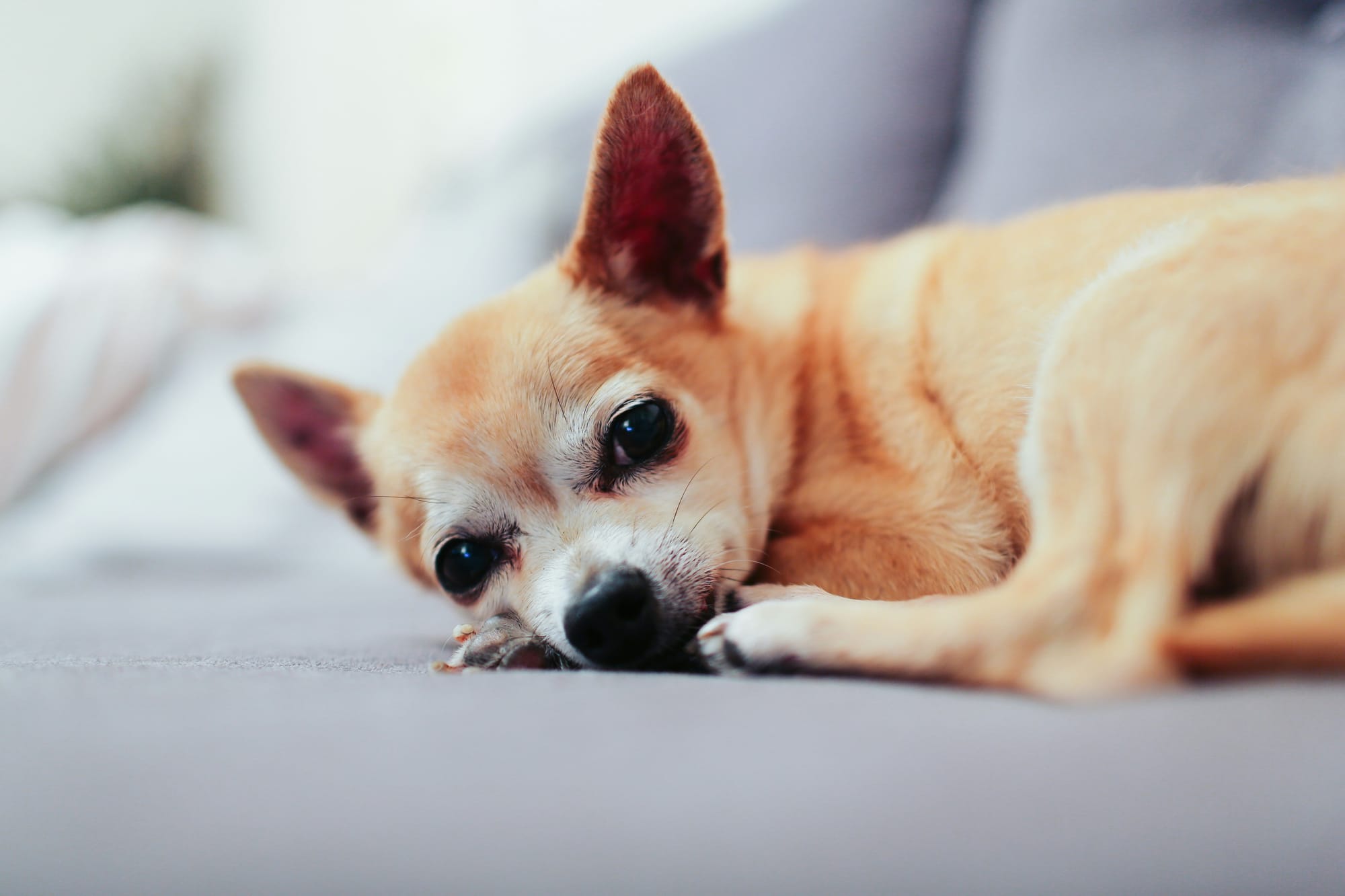
The allure of Teacup Chihuahuas lies not only in their adorable appearance but also in their charm and adaptability to various living situations, making them particularly popular among city dwellers and those with limited living space. Their size, coupled with their expressive eyes and varied coat colors and patterns, adds to their appeal, making them highly sought after as companion animals.
In addition to their aesthetic appeal, Teacup Chihuahuas have become a symbol of luxury and status, often seen in the company of celebrities and in popular culture, which has further fueled their popularity. However, their small stature belies a courageous and loyal temperament, making them not just fashion accessories but beloved members of many households. This introduction to the enchanting world of Teacup Chihuahuas will delve into their origins, care, and the unique considerations that come with owning such a small breed, offering insights into why these tiny canines continue to win over hearts around the globe.
Understanding Teacup Chihuahuas
Teacup Chihuahuas are not a distinct breed but rather an unofficial designation for exceptionally small Chihuahuas. These tiny canines typically weigh around 2 to 4 pounds, considerably less than the standard Chihuahua, which can weigh up to 6 pounds according to breed standards. What sets Teacup Chihuahuas apart is not just their diminutive size but also their fragile bone structure, a feature that requires special care and attention.
Characteristically, Teacup Chihuahuas possess the same alertness, loyalty, and intelligence as their standard-sized counterparts. They share the same variety in coat types, which can be either smooth or long-haired, and they come in a wide range of colors and patterns. Despite their small stature, they have a big-dog attitude, often unaware of their size, which makes them fearless and sometimes even feisty with larger dogs. Their expressive eyes and large, erect ears give them a look of perpetual curiosity and attentiveness.
Differences from Standard Chihuahuas
The primary difference between Teacup Chihuahuas and standard Chihuahuas lies in their size. Teacup Chihuahuas are bred to be smaller than the breed standard, often through selective breeding of the smallest individuals, a practice that can lead to a host of health issues due to the emphasis on size over health. Unlike standard Chihuahuas, Teacups can be more prone to hypoglycemia (low blood sugar), dental problems, and bone fractures due to their smaller size and more delicate bone structure.
Another key difference is their vulnerability to environmental factors. Due to their tiny size, Teacup Chihuahuas can struggle with temperature regulation, making them more susceptible to cold weather. They also require more frequent feeding schedules to maintain their blood sugar levels and prevent hypoglycemia, a common problem in very small breeds.
Common Misconceptions
One of the most prevalent misconceptions about Teacup Chihuahuas is that they represent a separate breed. In reality, "teacup" is a term used by breeders and enthusiasts to describe exceptionally small Chihuahuas and is not recognized by major kennel clubs. This misunderstanding can lead to unrealistic expectations regarding their size, care needs, and health.
Another common misconception is that their tiny size means they require less exercise and are easier to care for than larger dogs. While they may not need as much physical space, Teacup Chihuahuas still require regular exercise, mental stimulation, and social interaction to stay healthy and happy. Additionally, their small size can actually make them more challenging to care for, as they are more prone to injuries and health issues that require vigilant monitoring and care.
Understanding Teacup Chihuahuas involves recognizing their unique needs and vulnerabilities, while also appreciating the joy and companionship they bring. Despite their diminutive size, they are full of personality and require the same commitment and responsibility as any pet.
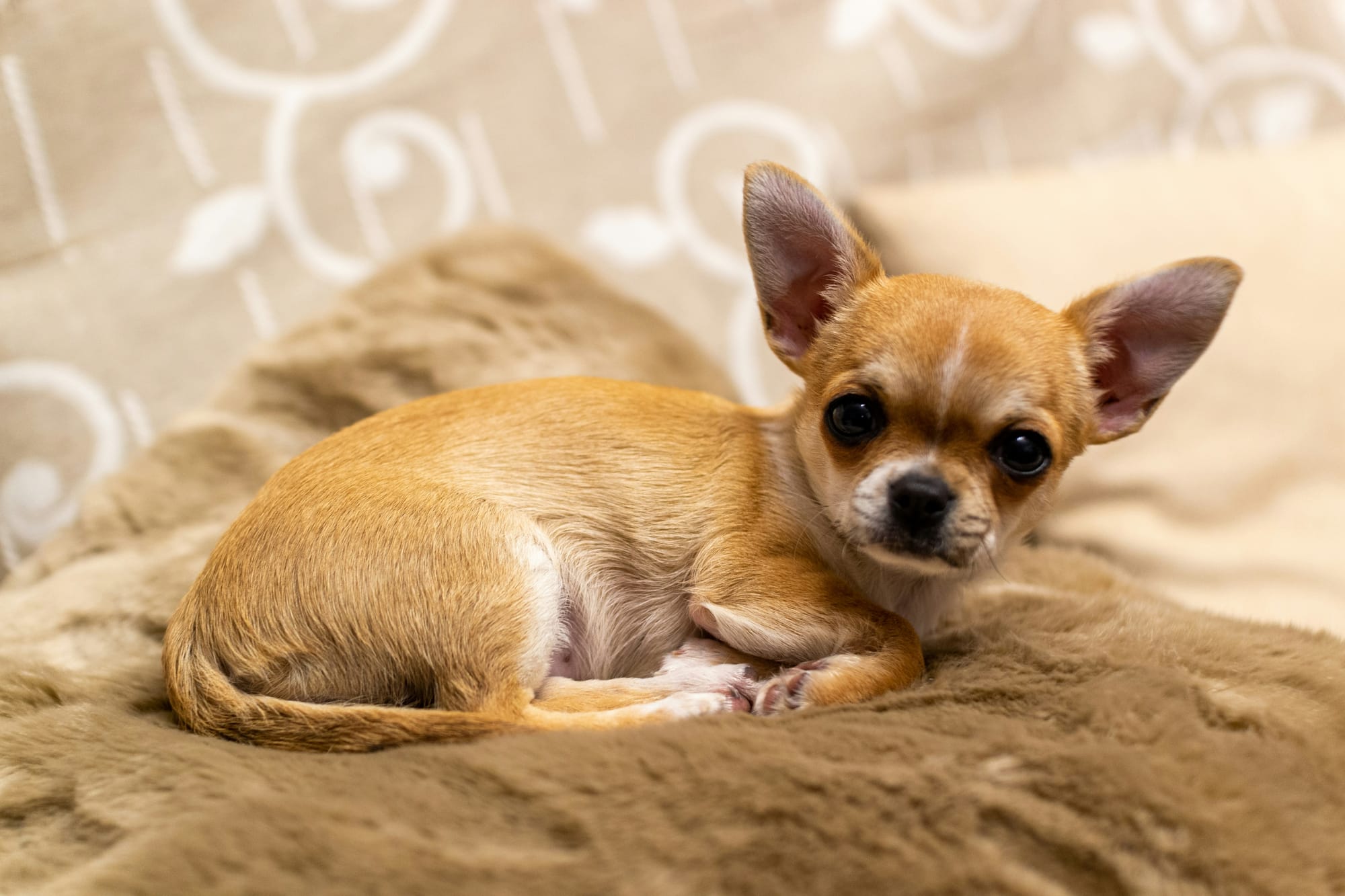
History and Origins
The Chihuahua, from which Teacup Chihuahuas descend, boasts a rich and somewhat mysterious history that traces back to ancient civilizations in Mexico. It is widely believed that Chihuahuas are descendants of the Techichi, a small, mute dog kept by the Toltec civilization as early as the 9th century. These dogs were not only companions but also held spiritual significance, believed to guide the souls of the deceased through the underworld.
With the arrival of the Spanish conquistadors and the subsequent blending of cultures, the Techichi evolved into the Chihuahua we recognize today. Named after the Mexican state of Chihuahua, where the breed was discovered by Americans in the mid-19th century, these dogs quickly gained popularity due to their diminutive size and spirited personality.
Evolution into the "Teacup" Size
The trend towards smaller Chihuahuas, eventually leading to the "Teacup" variety, gained momentum in the late 20th century, paralleling a growing demand for smaller, more manageable pets suitable for urban living. Breeders began selectively breeding smaller Chihuahuas to produce even tinier offspring, capitalizing on their appeal as portable and fashionable pets. This pursuit of miniaturization, while increasing their popularity, also raised concerns about the health and well-being of these exceptionally small dogs.
Cultural Significance and Popularity Trends
Chihuahuas, including Teacup Chihuahuas, have enjoyed significant cultural significance and popularity, particularly in the United States. Their prominence in popular media, often as companions to celebrities or in films and television, has cemented their status as iconic pets. This media exposure has contributed to trends in pet ownership, with many aspiring to adopt these tiny canines for their charm and status symbol potential.
The fascination with Teacup Chihuahuas also reflects broader societal trends valuing compactness and convenience, especially in the context of increasingly urbanized lifestyles. However, this popularity has also led to debates about the ethics of breeding practices aimed at achieving such small sizes, with advocates urging potential owners to consider the health implications and care needs of these petite pets.
Through understanding the historical roots and evolution of the Chihuahua breed, including the development of the Teacup Chihuahua, we can appreciate not only their enduring appeal but also the responsibilities that come with their care and preservation.
Physical Characteristics and Health
Teacup Chihuahuas are distinguished by their extremely small size, typically weighing between 2 to 4 pounds and standing around 6 inches tall at the shoulder, though some may be slightly larger. Despite their diminutive stature, they exhibit the same breed characteristics as standard Chihuahuas: a rounded "apple dome" skull, luminous, expressive eyes that are usually round and large in proportion to their heads, and erect ears that stand alert when they are attentive.
Their coats can be either smooth or long-haired, with a wide range of colors and patterns, including solid, marked, and splashed, allowing for a significant variety within the breed. Their small, dainty paws and compact bodies contribute to their fragile appearance, necessitating careful handling and protection from harm.
Health Concerns Specific to Teacup Chihuahuas
The breeding practices that emphasize extreme smallness can exacerbate health issues, some of which are inherent to the Chihuahua breed and others that are intensified by their reduced size. Common health concerns for Teacup Chihuahuas include:
- Hypoglycemia: Due to their small size, they have less body fat and may struggle to regulate their blood sugar levels, leading to hypoglycemia, especially in puppies or under stress.
- Dental Issues: Their small mouths often lead to overcrowded teeth, resulting in dental problems and gum diseases.
- Bone Fractures: Their delicate bones are more susceptible to fractures, even from minor falls or rough handling.
- Hydrocephalus: Also known as "water on the brain," this condition is more common in breeds with dome-shaped heads, leading to pressure on the brain and neurological issues.
- Heart Problems: Conditions like patent ductus arteriosus (PDA) and mitral valve disease are more prevalent in smaller dogs, including Teacup Chihuahuas.
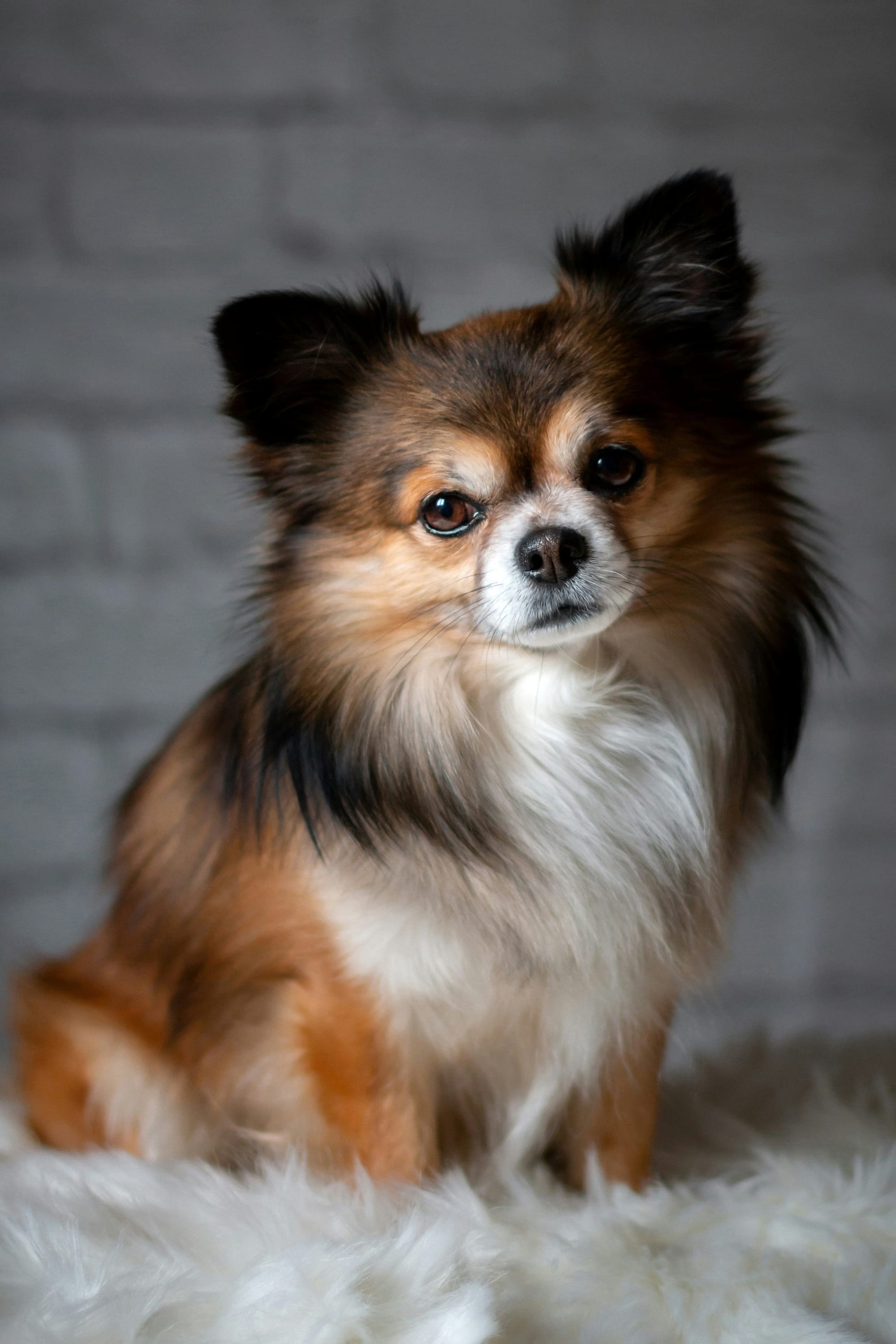
Lifespan and Genetic Considerations
Teacup Chihuahuas, like their standard counterparts, can enjoy a relatively long lifespan, often reaching 12 to 20 years with proper care. However, their longevity is heavily influenced by their health status and the quality of care they receive. Genetic factors also play a significant role, as some health issues are hereditary.
Prospective owners should be aware of these considerations and commit to providing a safe environment, regular veterinary care, and a healthy lifestyle to mitigate potential health issues. The allure of a Teacup Chihuahua's tiny size comes with significant responsibilities, emphasizing the importance of informed and ethical breeding practices to ensure the well-being of these charming, miniature companions.
Care and Maintenance
Teacup Chihuahuas have specific dietary requirements that are crucial for maintaining their health and vitality. Due to their small size and high metabolism, they need nutrient-dense, high-quality dog food that is appropriate for their life stage (puppy, adult, senior). Feeding small, frequent meals can help prevent hypoglycemia, a common issue in very small breeds. It's also important to monitor their caloric intake to prevent obesity, which can exacerbate health issues. Fresh water should be available at all times, and treats should be given sparingly to avoid weight gain.
Exercise and Activity Levels
Despite their small stature, Teacup Chihuahuas are energetic and enjoy being active. Daily exercise is important for their physical and mental well-being, but due to their size, this doesn't necessarily mean long walks. Indoor play, short walks, and supervised outdoor time in a secure area can meet their exercise needs. It's crucial to protect them from larger animals and rough play to prevent injuries. Mental stimulation through interactive toys and training can also keep them engaged and prevent boredom.
Grooming and Hygiene
The grooming needs of Teacup Chihuahuas vary depending on their coat type. Smooth-coated varieties require minimal grooming and can be maintained with regular brushing to remove loose fur and distribute skin oils. Long-haired Teacup Chihuahuas need more frequent brushing to prevent tangles and mats. Regardless of coat type, all Teacup Chihuahuas should have their nails trimmed regularly, their ears checked and cleaned to prevent infections, and their teeth brushed frequently to prevent dental issues, which are common in small breeds. Bathing should be done as needed, using a gentle dog shampoo to keep their skin and coat healthy.
Special attention should be given to their eyes, which can be prone to tearing and irritation, by gently wiping away any discharge with a soft, damp cloth. Given their small size and potential for health issues, regular veterinary check-ups are essential to monitor their health and address any concerns promptly.
Caring for a Teacup Chihuahua requires a commitment to their unique needs, with a focus on preventive care to ensure a long, happy, and healthy life. Their size might make them seem like low-maintenance pets, but their energy, personality, and health considerations call for dedicated and attentive care.
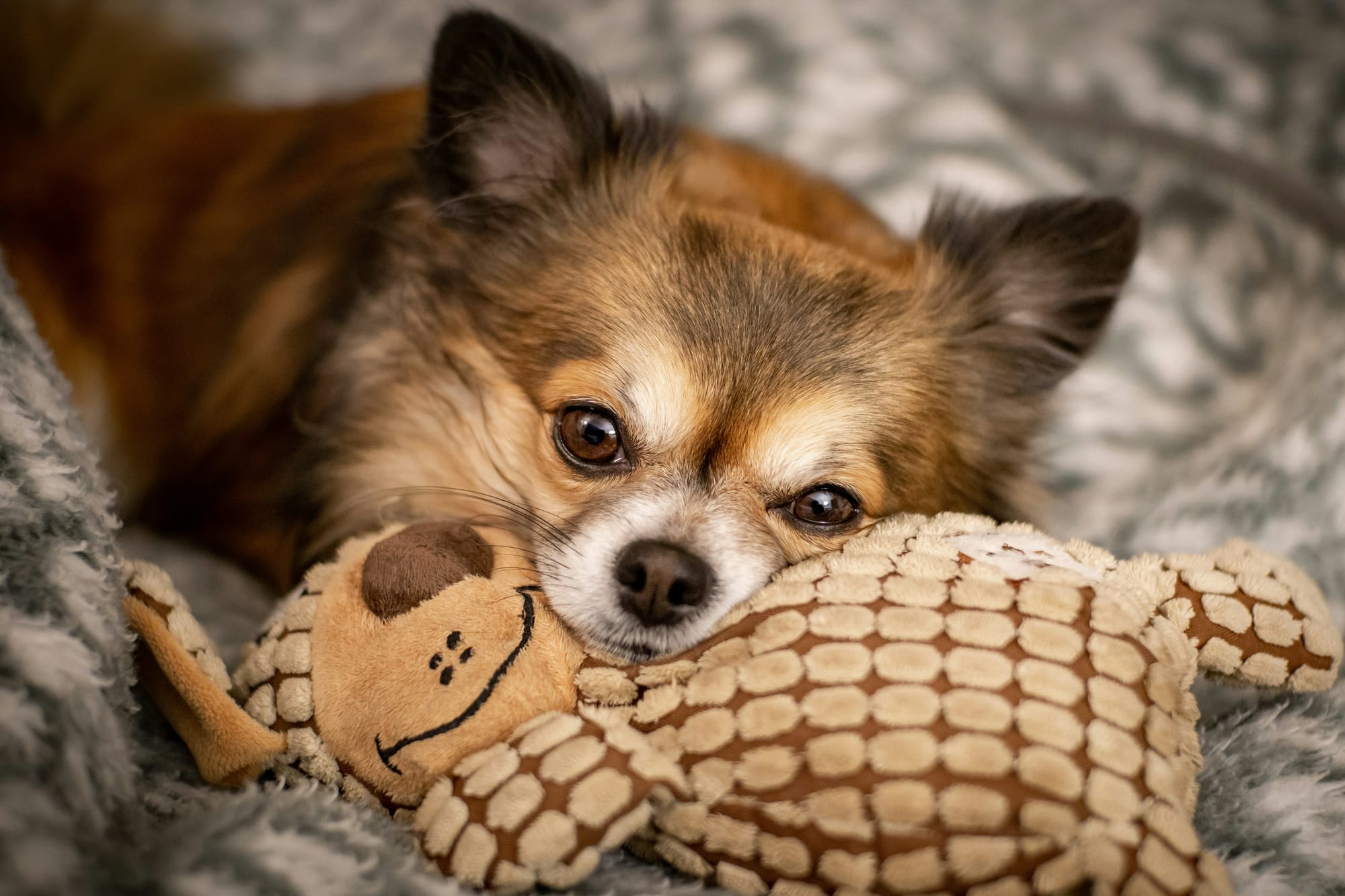
Behavioral Traits
Teacup Chihuahuas, despite their small size, have big personalities. They are known for their loyalty, intelligence, and vivaciousness. Often forming a strong bond with one particular person, they can be fiercely devoted companions. Their alertness makes them excellent watchdogs as they are quick to sound the alarm at the sight of strangers. However, this trait needs to be managed through training to prevent excessive barking.
Their size doesn't hinder their confidence; Teacup Chihuahuas can be quite bold and sometimes unaware of their limitations, confronting much larger dogs without hesitation. This fearless nature requires supervision and guidance to ensure their safety. They also tend to be high-spirited and playful, enjoying interactive games and activities that engage their minds.
Socialization and Training Challenges
Early socialization and consistent training are crucial for Teacup Chihuahuas. Due to their small size and protective nature, they can develop "small dog syndrome," where they exhibit behaviors like yappiness, skittishness, and aggression out of fear or territoriality. Proper socialization introduces them to a variety of people, animals, and situations, helping them become well-adjusted adults.
Training a Teacup Chihuahua can be challenging due to their independent streak, but they are intelligent and capable of learning quickly with the right approach. Positive reinforcement techniques, such as treats and praise, are effective, while punishment can be detrimental and lead to fearfulness. Consistency and patience are key, as is keeping training sessions short and engaging to hold their attention.
Compatibility with Families and Other Pets
Teacup Chihuahuas can be excellent companions for the right family. They are best suited to households without young children, as their small size makes them vulnerable to unintentional harm from rough play. Older children who understand how to interact gently and respectfully with small animals can form strong bonds with these tiny dogs.
When it comes to other pets, Teacup Chihuahuas can get along well with animals they have been raised with but may be reserved or even aggressive toward unfamiliar animals. Careful introductions and supervision are necessary when introducing new pets into the household. Their size and temperament make them more compatible with pets of similar size or with those known to be gentle.
Overall, Teacup Chihuahuas are charming, lively companions with distinct personalities that shine through their diminutive stature. Understanding and catering to their behavioral needs, through socialization, training, and the right family environment, can ensure a harmonious and fulfilling relationship with these tiny, spirited dogs.
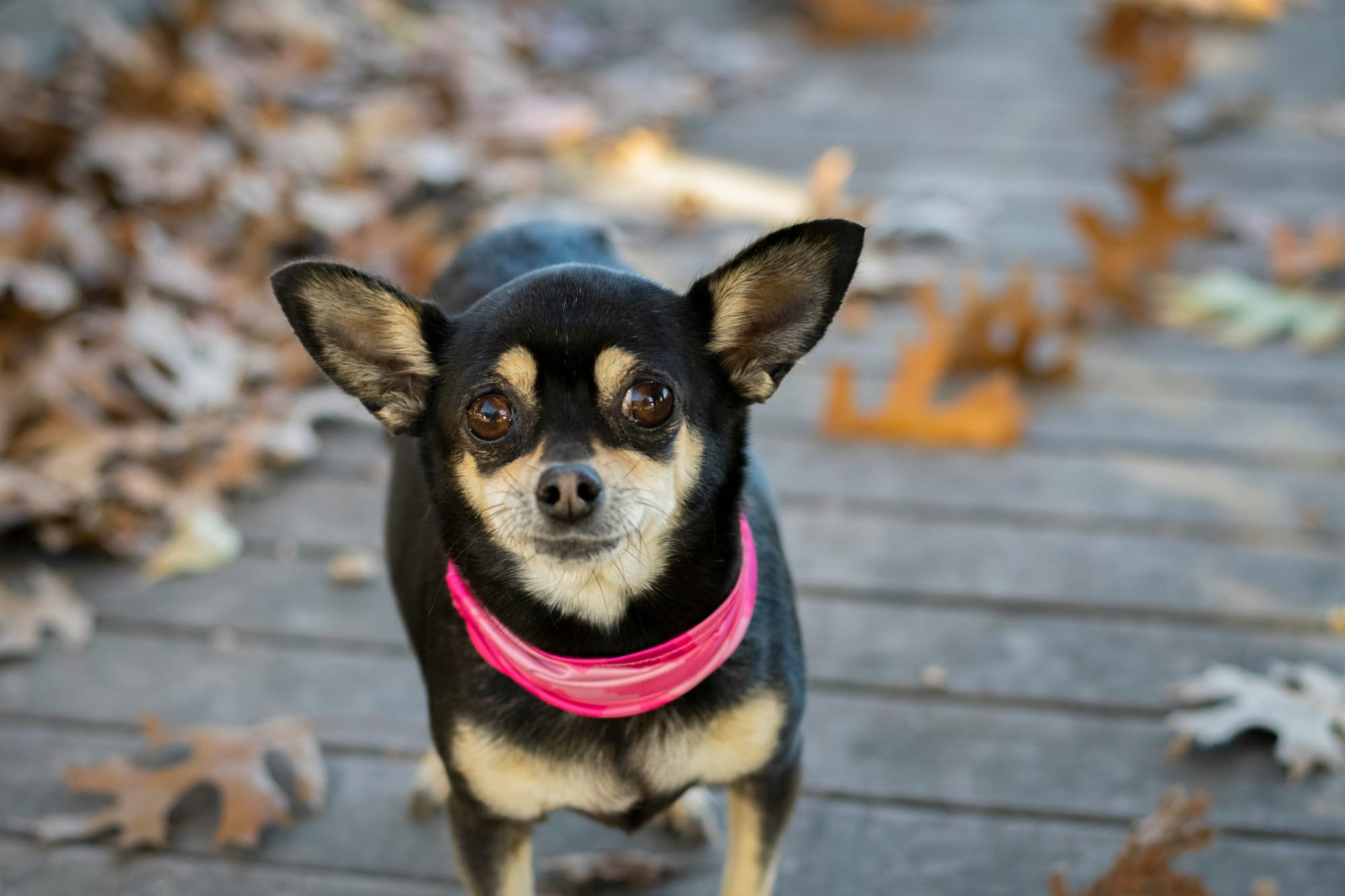
Ethical Considerations
The breeding of Teacup Chihuahuas has sparked considerable debate within the canine community and beyond, primarily due to the health risks associated with their diminutive size. Ethical concerns arise when breeders prioritize size over health, leading to a proliferation of health issues in these tiny dogs. Critics argue that the pursuit of breeding the smallest dogs possible can lead to irresponsible practices, such as inbreeding and selecting for physical traits that compromise the animals' well-being.
Another point of contention is the lack of official recognition for the "teacup" designation, which is not acknowledged by major kennel clubs. This lack of standardization can lead to misleading marketing practices, where buyers may not be fully informed about the potential health and care challenges associated with these extremely small pets.
Health Implications of Breeding for "Teacup" Size
The health implications for Teacup Chihuahuas are significant, with many facing a range of congenital and chronic conditions. The process of breeding for smaller sizes can exacerbate issues like dental malocclusions, bone fragility, and hypoglycemia. There's also an increased risk of hydrocephalus, heart defects, and respiratory problems in these miniaturized dogs.
These health challenges not only affect the quality of life for the dogs but also impose emotional and financial burdens on their owners. Ethical breeders focus on health and temperament over size, but the demand for "teacup" puppies perpetuates practices that can harm the breed's overall health.
Adopting vs. Buying from Breeders
The decision to adopt a Teacup Chihuahua or purchase one from a breeder is laden with ethical considerations. Adoption from shelters or rescue organizations offers a home to a dog in need and is a stand against the commercial breeding of dogs for extreme traits. Many Chihuahuas and Chihuahua mixes, including those of smaller sizes, are available for adoption and can make wonderful pets.
For those set on getting a Teacup Chihuahua from a breeder, it's crucial to research and find a reputable breeder who prioritizes health and ethical breeding practices. Prospective owners should inquire about health screenings, genetic testing, and the living conditions of the dogs. Ethical breeders will be transparent, allowing visits to see where the dogs are raised and meet the puppy's parents.
Navigating the ethical landscape of owning a Teacup Chihuahua involves understanding the complexities of their breeding, the potential health issues, and the impact of one's choice on the broader issues of animal welfare and responsible pet ownership. Whether choosing to adopt or buy, the welfare of the animal should always be the paramount concern.
Choosing a Teacup Chihuahua
Selecting a healthy Teacup Chihuahua puppy requires careful observation and knowledge of what constitutes a healthy dog. Key indicators include:
- Active and Alert: The puppy should be energetic and curious about its surroundings, not lethargic or disinterested.
- Clear Eyes and Nose: Look for bright, clear eyes without discharge or redness, and a clean nose without excessive sneezing or discharge, which could indicate respiratory issues.
- Healthy Coat: The coat should be clean, shiny, and free of bald spots or signs of fleas and ticks.
- Good Appetite: A healthy puppy should show interest in food and have a good appetite.
- Normal Body Condition: The puppy should not appear too thin (ribs easily felt or seen) or too chubby, which could suggest an unhealthy diet.
- Friendly Disposition: While individual personalities vary, the puppy should not be overly timid or aggressive.
- Mobility: The puppy should move freely and without any sign of discomfort or limping.
Questions to Ask Breeders
When interacting with breeders, it’s crucial to ask the right questions to ensure the health and well-being of the puppy. Consider asking:
- Health Screening and Vaccinations: Inquire about the health screenings the parents have undergone, the medical history of the puppy, and its current vaccination and deworming status.
- Genetic Testing: Ask if genetic testing has been done to screen for common hereditary conditions in Chihuahuas.
- Return Policy: A reputable breeder should offer a return policy if health issues arise.
- Socialization: Ask about the socialization practices the breeder uses to ensure puppies are well-adjusted to humans and other dogs.
- Breeding Philosophy: Understanding the breeder's goals and ethics can provide insight into how the puppies are raised and cared for.
Preparing for a Teacup Chihuahua's Arrival
Bringing a Teacup Chihuahua into your home requires preparation to ensure a safe and welcoming environment:
- Safe Space: Create a safe, cozy area for your puppy with a comfortable bed, away from high-traffic areas to reduce stress.
- Size-Appropriate Supplies: Purchase supplies such as a small harness, soft leash, and toys suitable for a tiny dog's mouth and strength.
- Nutrition: Have the right type of puppy food, preferably the same brand the breeder was using, to avoid gastrointestinal upset. Gradually transition to your preferred brand if necessary.
- Veterinary Care: Schedule a veterinary visit soon after the puppy's arrival to establish a health plan and continue vaccination schedules.
- Puppy Proofing: Ensure your home is safe for a small puppy by removing hazardous items, securing electrical cords, and ensuring there are no small spaces where the puppy could get stuck or injured.
Choosing a Teacup Chihuahua is a significant commitment that involves careful consideration of the puppy's health, the breeder's ethics, and the preparation of your home to welcome a new, tiny member into your family.
Conclusion
Owning a Teacup Chihuahua brings immense joy but also significant responsibility. These tiny companions, while adorable, require careful attention to their unique health needs, ethical breeding considerations, and proper socialization. Prospective owners must be prepared for the challenges and commitments of caring for such a small breed, ensuring their well-being through informed, responsible pet ownership. Embracing the role of a Teacup Chihuahua guardian means providing love, protection, and a nurturing environment, ensuring these diminutive dogs lead full, happy lives.
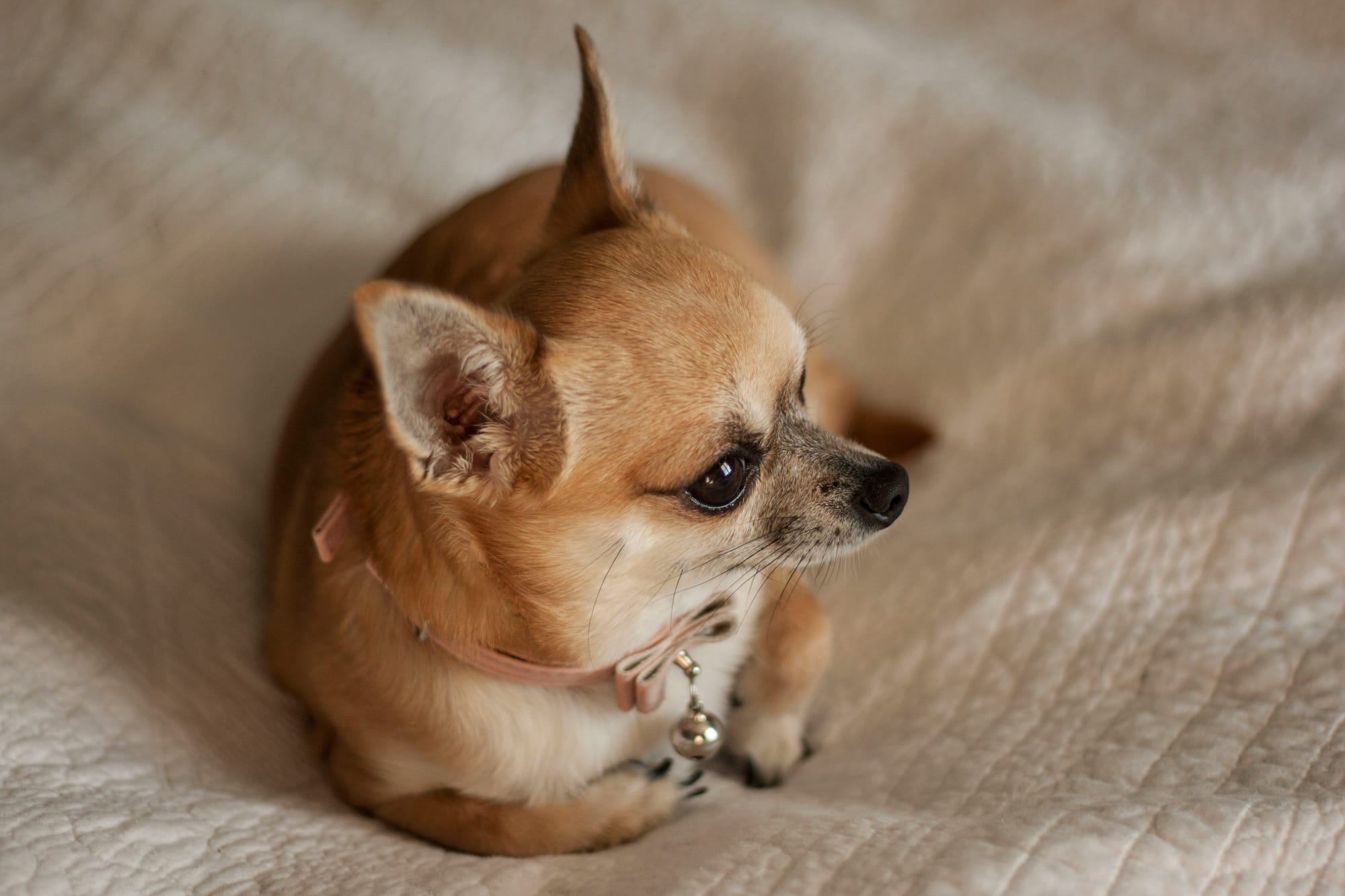
FAQs
- What is a Teacup Chihuahua?
- A Teacup Chihuahua is not a separate breed but an unofficial term used to describe exceptionally small Chihuahuas, typically weighing between 2 to 4 pounds. They share the same characteristics as standard Chihuahuas but are smaller in size.
- Are Teacup Chihuahuas recognized by major kennel clubs?
- No, the "teacup" designation is not officially recognized by major kennel clubs. It is a term used by breeders and enthusiasts to describe Chihuahuas that are smaller than the breed standard.
- What are common health concerns for Teacup Chihuahuas?
- Teacup Chihuahuas are prone to health issues such as hypoglycemia (low blood sugar), dental problems, bone fractures due to their fragile size, hydrocephalus (water on the brain), and heart conditions.
- How long do Teacup Chihuahuas typically live?
- With proper care, Teacup Chihuahuas can enjoy a lifespan similar to standard Chihuahuas, often ranging from 12 to 20 years. Their longevity heavily depends on their health and the quality of care they receive.
- What kind of care do Teacup Chihuahuas require?
- They need nutrient-dense food in small, frequent meals, regular gentle exercise, careful grooming, and protection from cold temperatures. Due to their size, they also require vigilant monitoring to prevent injuries and ensure their health needs are met.
- Can Teacup Chihuahuas be good family pets?
- Teacup Chihuahuas can be wonderful companions for families without young children. Their small size makes them vulnerable to unintentional harm, so they're better suited to households with older children who understand how to interact gently with small pets.
- What should I consider before getting a Teacup Chihuahua?
- Potential owners should consider the breed's health issues, the ethical implications of breeding for small size, and the level of care these dogs require. It's important to choose a reputable breeder or consider adoption to ensure the health and well-being of the dog.






